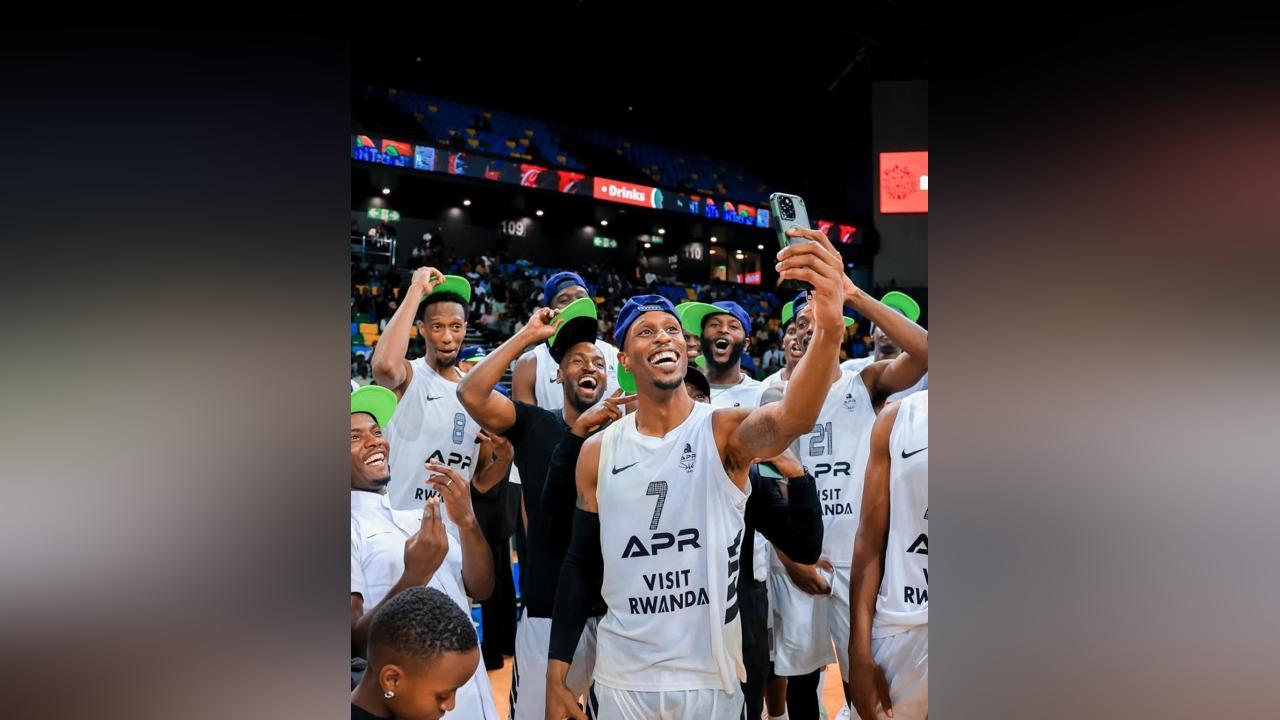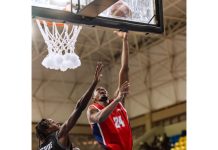Africa-Press – Rwanda. The 2025 men’s basketball season in Rwanda was a great one with key highlights including the fact that it featured the Basketball Africa League (BAL) Most Valuable Player (MVP) Jean-Jacques Boissy and the tournament’s most defensive player Aliou Diarra.
This illustrates the level at which the domestic league continues to be competitive and attracts talents from across the globe. Over the years, the league has gained global visibility and attracted international high-level players and coaches from all over the world, some coming from best leagues in the world like NBA G-League.
Basketball teams sealed sponsorship deals and the game unlocked employment opportunities, which is in line with the government plans to position sports as an engine for socio-economic development.
From players to coaches, strength and conditioning experts, video analysts, videographers, social media handlers, ticketing and ushers, all these jobs emerged as a result of the rapidly growing league. None of these roles existed a decade ago. All this is of course possible because of the modern sports infrastructure that continues to develop in the country, thanks to the evident visionary leadership.
While the local league has elevated players to the continental stage, it must not be detrimental to local talents. As the league gets competitive, teams seem to lose patience and not fully invest in grooming local talents.
The tendency has been to opt for quick fixes to survive one league after the other. When we say local players or talents, we mean players who grew up and learned to play basketball in Rwanda. Their quantity and quality continue to decline and if nothing is done it will affect the entire national basketball ecosystem and the consequences will be best reflected in the national team, where naturalization continues to gain ground.
As often said, numbers don’t lie and here are a few facts about how local players performed in the just concluded season. No local player appears in the top 10 of those who scored the most points. Only one local player, Jean de Dieu Niyungeho, from Espoir BBC, made it to the list of the top 10 of players with most assists. When it comes to top rebounders, the top 10 only includes three local players.
The ranked sixth, eighth and 10th players are Cadeaux de Dieu Furaha (Patriots BBC), Prince Muhizi and Olivier Shyaka (both REG BBC), respectively. Another alarming fact is that only two Rwandan players made it to the BAL 2025 as part of the APR BBC roster. These players are Justin Uwitonze and Jean Jacques Nshobozwabyosenumukiza who had very limited playing time during the tournament.
Playing time for local players is a problem for most teams in the national league and only very few make it to their teams’ starting lineups. With an increasingly competitive league, teams have no choice but to compete and, understandably, may opt for quick fixes to survive. But they can also do more to identify and groom local talents, a more sustainable solution to the persisting talent deficit dilemma.
It all must start with setting up dedicated talent detection and development targeting the young ones. This is a topic that will be unpacked another day.
Preferential treatment is another ill that continues to undermine efforts by local players across teams in the league. In comparison to teammates who are foreigners, local players decry not getting all the benefits to improve their playing levels.
For example, paid membership to the gym is not for all. Local players, who tend to be younger and in possession of multiple years’ contracts, also do not get the necessary treatment whenever injured during games or practices.
This affects their recovery and growth trajectories. Despite having multiple years’ contracts with teams, the terms of the contracts are rarely fully respected by their employers – the teams. It’s becoming the norm to only pay players during the season (6 months) and leave them on their own during the offseason period.
These local players, with very low pay compared to their foreign teammates, struggle with basic needs such as food and accommodation during this painful period of the year.
One could wonder the math behind bringing in foreign players, mostly in their late 30s, on short-term basis, paying them colossal amounts and investing in their wellness (access to gym, accommodation, and other benefits) and, on the other hand, issue multiple years’ contracts to young local players to only honor contractual obligations partly and leave them on their own to struggle with meeting their basic needs.
What should the teams expect from this? And who is to blame? The offseason period has turned into a nightmare for most local players. They can’t eat proper food, nor enjoy minimum good living standards for their bodies to recover. Let alone get paid membership to the gym and other dedicated fitness programs to improve their athleticism and so on.
For many local players, the off-season is synonymous with uncertainty. It is the time when contracts are not respected and become mere papers with no value, when phone calls and messages from players go unanswered. It is very hard for any local player to think about working on improving his game skills, athleticism or wellness when he is not sure about getting the next meal, paying rent or other personal expenses for about 6 months in a year.
It is understood that there are prospects to increase the number of foreign players that teams could feature during the regular seasons. Is it the right move? Arguably not. It’s high time local teams revisited their strategies and budgets to ensure fair treatment applies to all players.
They should prioritize talent detection and grooming instead of going for short term and expensive quick fixes.
Understandably, foreign players should be always welcome to bring experience and skills to the local basketball ecosystem that is still building. But doing so shouldn’t disrupt nor substitute local talent nurturing.
The author is a FIBA-licensed agent.
For More News And Analysis About Rwanda Follow Africa-Press






